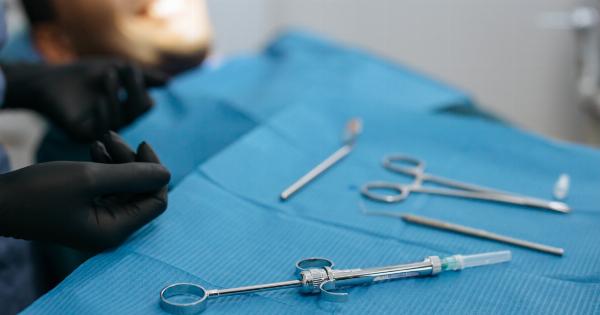As we age, the fear of developing dementia remains a constant worry. Dementia is a collective term that refers to a decline in cognitive ability that interferes with daily life.
It includes symptoms such as memory loss, difficulty in communicating, and thinking, visual perception, and self-management. There are several risk factors that contribute to developing dementia, and there is a growing concern regarding anesthesia and its role in causing the disease or speeding up its onset.
Theories behind Anesthesia and Dementia
Anesthesia is a state of temporary unconsciousness that is induced by administering drugs that are designed to reduce pain and awareness during a medical procedure.
The process involves manipulating the brain function to the point that it becomes temporarily dysfunctional. The drugs used to achieve this effect include propofol, sevoflurane, isoflurane, and desflurane. These drugs target specific receptors in the brain that control the release of neurotransmitters and induce sleep.
One theory regarding anesthesia and dementia suggests that anesthetics can cause a build-up of beta-amyloid protein in the brain.
Beta-amyloid is a protein that is produced in the body and is usually cleared out of the brain through the cerebrospinal fluid. However, when there is a deficiency in the clearance system or an increase in production, beta-amyloid builds up in the brain and forms plaques.
These plaques are a hallmark of Alzheimer’s disease and are believed to block the communication between neurons.
Another theory suggests that anesthesia can cause inflammation in the brain, which can lead to cognitive dysfunction.
This is because under normal conditions, the brain produces a type of molecule known as interleukin-1 beta, which is vital in fighting off infections and injuries. However, when inflammation occurs, there is a massive production of this molecule, which can cause brain tissue injury. This damage to brain tissue can cause memory loss and other cognitive problems.
Studies on Anesthesia and Dementia
A study published in the British Journal of Anaesthesia in 2017 investigated the link between exposure to anesthesia and a long-term decline in cognitive ability.
The study involved analyzing the records of over 5000 patients aged over 65 who underwent surgery and had no history of dementia. The researchers found that patients who had undergone anesthesia had an increased risk of developing dementia within the following five years.
The study also found that even a single exposure to anesthesia can be enough to increase the risk of dementia.
However, not all studies have found a link between anesthesia and dementia. A 2019 study, published in The Lancet, analyzed the records of over 200,000 patients who underwent surgery.
The results showed that exposure to anesthesia did not increase the risk of developing dementia within the five years that followed surgery. The study also found that patients who underwent surgery and exposure to anesthesia showed no difference in cognitive ability when compared to patients who underwent surgery without anesthesia.
Factors that Might Increase the Risk of Dementia Following Anesthesia
Apart from the direct link between anesthesia and dementia, there are other factors that might increase the risk of developing dementia following surgery. These include:.
Age
Age is one risk factor that can increase the risk of developing dementia following anesthesia. This is because as we age, the brain’s ability to recover from trauma or injury diminishes.
This means that any damage caused by anesthesia, whether it be the formation of plaques or inflammation, is more severe in older adults.
Genetics
Another factor that can increase the risk of dementia following anesthesia is genetics. Researchers have found a link between specific genes and an increased risk of developing dementia.
For example, the APOE gene is known to be a strong risk factor for developing Alzheimer’s disease and is also associated with an increased risk of cognitive decline following anesthesia.
Pre-Existing Medical Conditions
Pre-existing medical conditions such as hypertension and diabetes can also increase the risk of developing dementia following anesthesia.
This is because these conditions can cause damage to the brain, making it more susceptible to further damage caused by anesthesia. Additionally, patients with pre-existing medical conditions may need to undergo surgery more frequently, which increases their overall exposure to anesthesia.
Conclusion
The link between anesthesia and dementia remains inconclusive, with studies showing mixed results. However, it is essential to consider the indirect factors that can increase the risk of developing dementia following surgery and anesthesia.
Age, genetics, and pre-existing medical conditions can all play a role in determining an individual’s susceptibility to cognitive decline following anesthesia.





























